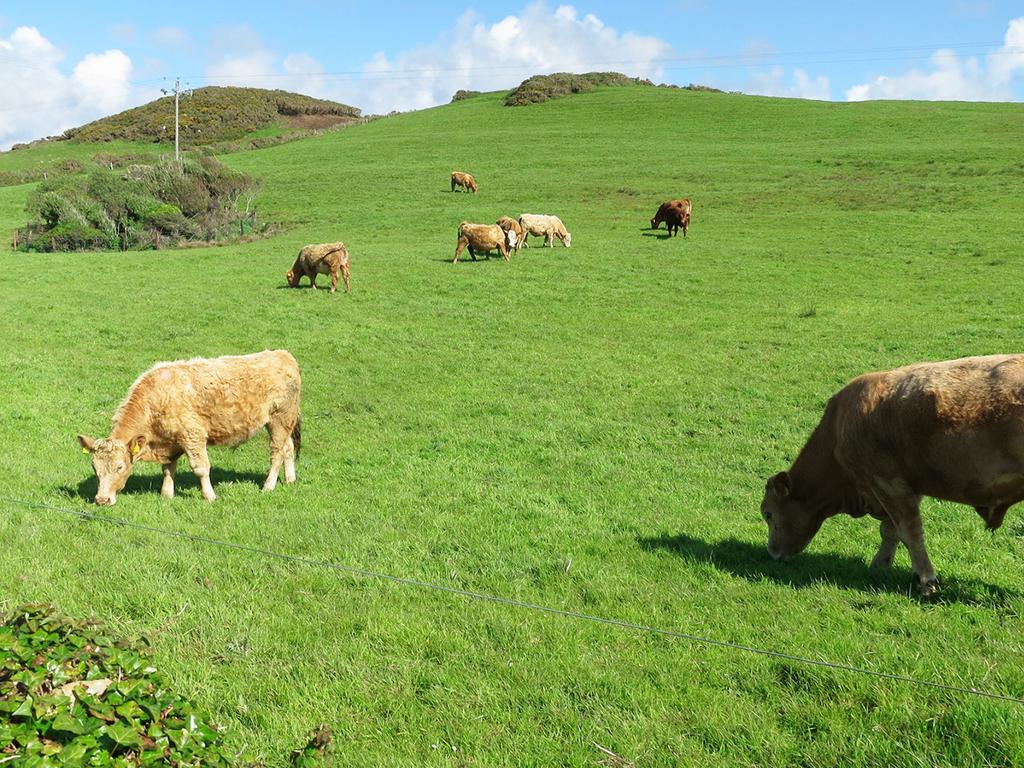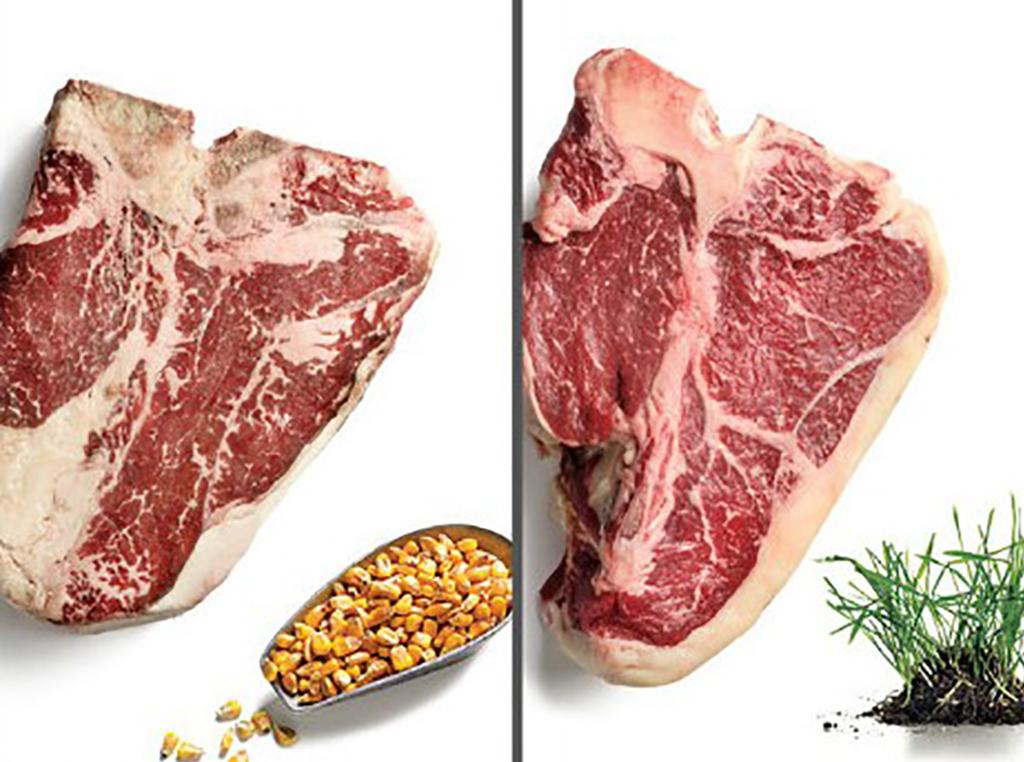5 Mins Read
If you have shopped for beef or lamb recently, you have noticed the sheer prevalence of labels popping up on various types of meat. Should you go for Australian grain-fed beef or Welsh organic lamb? What do all of these labels mean for you and your family? Green Queen is here to help and below is an overview of the grain-fed vs grass-fed debate as well as proper definitions for all the different terms you may be seeing at the grocery store.
Cows and sheep have been raised for their meat for thousands of years, and have traditionally been found grazing on hillsides around the globe- they are evolved to be herbivores that live outside. These days, most of the meat we consume is industrially processed grain-fed meat by animals raised in pens and administered large doses of pharmaceutical drugs- meat companies have learnt that meat for human consumption can be reared much more quickly and at a much lower cost. Notably, the time it takes for a cow to mature has been shortened from 4 to 5 years to as little as 14 to 16 months.
This change to the natural growth process of the animals is not without consequence. Animals that are growing so fast need to be fed large amounts of food- which has led to the widespread consumption of grain. Feeding cows and sheep a diet that their bodies are not naturally made to digest, such as corn and soybeans, leads to them developing ulcers, liver damage, and lowered immunity to a range of disease. In addition animals are frequently kept in small pens with many other animals in close proximity, which in turn breeds disease. In order to ensure that entire pens of animals do not become sick, farmers treat their herds with antibiotics. In the US, over 70% of antibiotics produced in the market are administered to farm animals. As many scientists and the American Food and Drug Administration in the US have pointed out, a troubling consequence of this pan-meat-industry usage of antibiotics is the sheer number of antibiotic-resistant bacteria that are developing.
The growth hormones that are administered to cows and sheep are versions of steroids taken by athletes and body builders. These hormones are made of of testosterone, estrogen, and other hormones normally found in mammals. In different dosages these hormones can be harmful to humans, especially children, and have been linked to to the early onset of puberty that is observed across much of the developed world, where industrial meat is a part of the daily diet. Further, consuming hormone-treated meat has been linked with other reproductive health issues such as ovarian cysts and low sperm count. The European Union has banned the usage of growth hormones in the meat rearing industry, but they are still legal in many other countries.
Grain-fed meat has a very different nutrition content from grass-fed meat. Grain-fed meat has lower amounts of Omega-3 fatty acids (the stuff that is so good for your brain), by as much as 50%, and increased amounts of Omega-6 fatty acids (too much of which is not good for you- higher levels of Omega-6 fatty acids have been repeatedly linked to heart disease and cancer). Grain-fed meat is also lower in conjugated linoleic acid (CLA) and which helps to combat cancer, diabetes, and heart disease. Other nutritional impacts of grain-fed meat are lower levels of beta-carotene, vitamin E, and other micronutrients. In conclusion, all the health benefits of meat are significantly reduced or disappear completely when consuming grain-fed meat.
With all the health controversies surrounding grain-fed meat, why do some people swear by it? The answer is grain-fed meat can be extremely tasty- it often has a higher overall fat content and more marbling. Steak aficionados and many chefs choose grain-fed for these reasons. It should also be noted that not all grain-fed beef is industrially raised. High-end restaurants tend to work with specialty meat breeders who are focused on producing a gourmet quality standard of meat, and the animals can be raised in very humane conditions without the usage of growth hormones or antibiotics. However, the health risks of consuming grain-fed meats still remain.
So to recap why should you avoid grain-fed meat and choose alternatives:
- Better for the planet (less energy needed for pasture-fed meat, no antibiotics/hormones in water supply, etc)
- Better for the animals (less disease, less hormone and antibiotic usage)
- Better for your health (no hormones, no antibiotics, higher levels of Omega-3s, vitamin E, etc)
- Better for farmers & community (know where your food comes from, support the artisanal food movement, avoid highly processed, industrial food)
Given this information, if you are want to buy non grain-fed meat, what are your options? Below we decipher all the terms that can cause so much confusion at the butcher’s counter:
Organic Meat
For meat to qualify as organic the animals must be fed certified organic feed and must be raised without hormones or antibiotics. However, organic is primarily a term for agriculture and keep in mind that organic meat can be grain-fed.
Grass-Fed Meat
This term refers to the diet of the animal and means that they are fed primarily grass as compared to grain. However, it should be noted that grass-fed meat can be finished with grain for the last 2 to 3 months.
100% Grass-Fed Meat
These animals only eat fresh grass and dried grasses such as hay. They never receive grain as a part of their diet.
Pasture-Raised Meat
Pasture-raised meat refers to where these animals eat and ensures they have room to roam. However, pasture-raised meat can be fed grain to supplement their diet and this is a common practice for animals reared in colder climates in the winter months.
Pasture-Fed Meat
Pasture-fed animals graze on open pastures. This means the animals have both the space to roam and are grass-fed.
Looking to buy organic, grass-fed, or pasture-raised meat in Hong Kong? Check out Green Queen’s Guide to Sustainable Meat & Seafood.
Photo credit: alex ranaldi via photopin cc, CCKrause via photopin cc, wili_hybrid via photopin cc.








